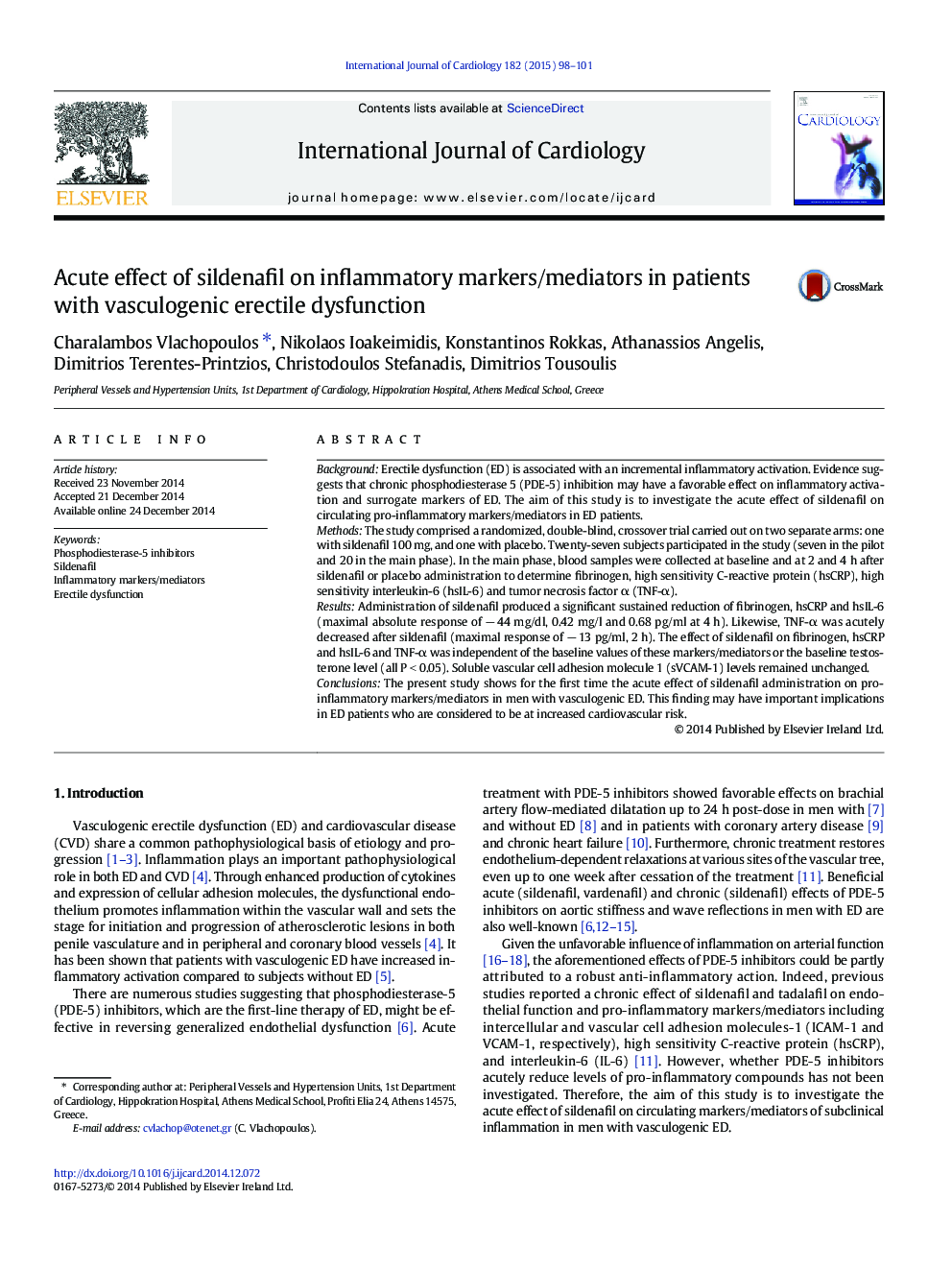| Article ID | Journal | Published Year | Pages | File Type |
|---|---|---|---|---|
| 5967370 | International Journal of Cardiology | 2015 | 4 Pages |
BackgroundErectile dysfunction (ED) is associated with an incremental inflammatory activation. Evidence suggests that chronic phosphodiesterase 5 (PDE-5) inhibition may have a favorable effect on inflammatory activation and surrogate markers of ED. The aim of this study is to investigate the acute effect of sildenafil on circulating pro-inflammatory markers/mediators in ED patients.MethodsThe study comprised a randomized, double-blind, crossover trial carried out on two separate arms: one with sildenafil 100 mg, and one with placebo. Twenty-seven subjects participated in the study (seven in the pilot and 20 in the main phase). In the main phase, blood samples were collected at baseline and at 2 and 4 h after sildenafil or placebo administration to determine fibrinogen, high sensitivity C-reactive protein (hsCRP), high sensitivity interleukin-6 (hsIL-6) and tumor necrosis factor α (TNF-α).ResultsAdministration of sildenafil produced a significant sustained reduction of fibrinogen, hsCRP and hsIL-6 (maximal absolute response of â 44 mg/dl, 0.42 mg/l and 0.68 pg/ml at 4 h). Likewise, TNF-α was acutely decreased after sildenafil (maximal response of â 13 pg/ml, 2 h). The effect of sildenafil on fibrinogen, hsCRP and hsIL-6 and TNF-α was independent of the baseline values of these markers/mediators or the baseline testosterone level (all P < 0.05). Soluble vascular cell adhesion molecule 1 (sVCAM-1) levels remained unchanged.ConclusionsThe present study shows for the first time the acute effect of sildenafil administration on pro-inflammatory markers/mediators in men with vasculogenic ED. This finding may have important implications in ED patients who are considered to be at increased cardiovascular risk.
